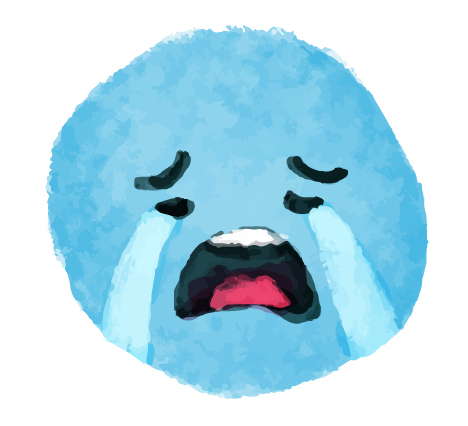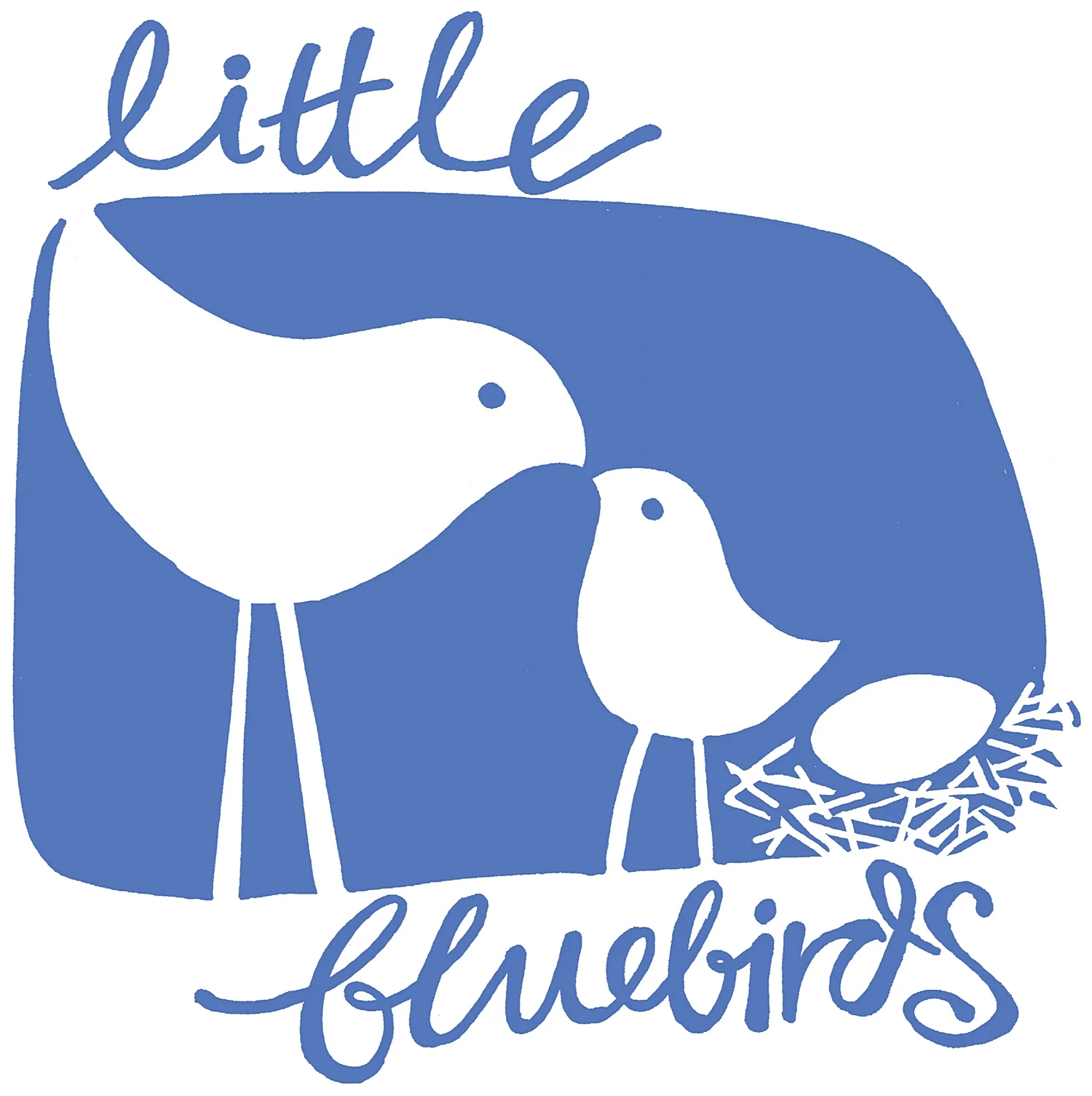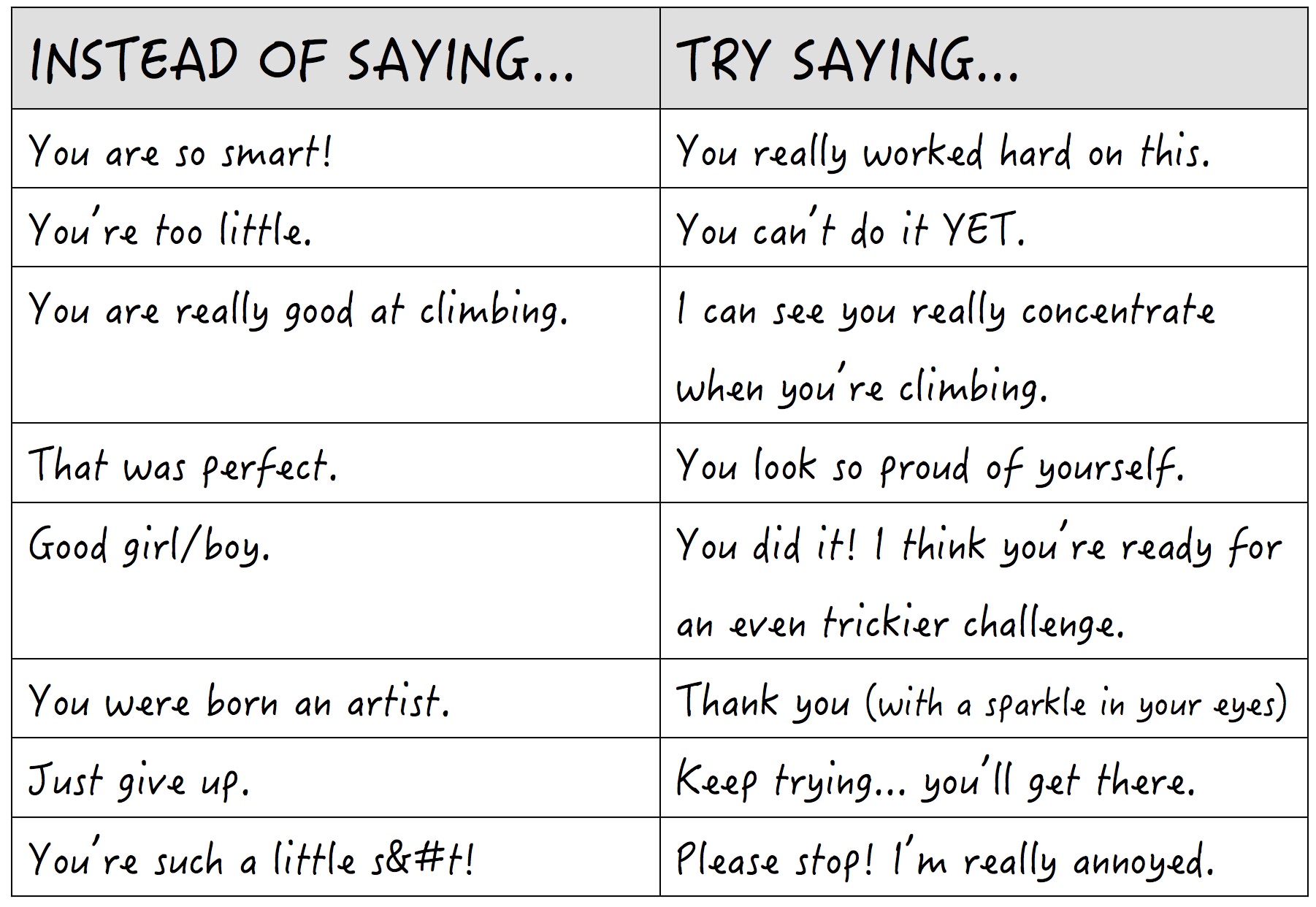The other day in the supermarket I overheard a mum say to her toddler:
"You're such a little s&#t!"
Clearly this mum was at the end of her wits (and haven't we all been there!). Possibly she'd been up half the night with a sick child, perhaps she'd just had an argument with her partner, maybe she didn't know how she was going to pay this week's rent and almost certainly she was completely exhausted by the 24 hour a day, seven day a week, 365 days of the year job that is parenting...
But there it was:
"You're such a little s&#t!"
At the time I pretended not to notice, but privately I was shocked.
And then I started listening (really listening) to all the different words children hear from parents, teachers, strangers, other kids...



"Good girl"
"You're such a cry baby"
"Perfect!"
"What a cute outfit"
"He's shy"
"She never sits still"
"You're so clever"
"He's a fussy eater"
And I wondered... how do the words our children hear shape them?
MINDSET THEORY
I turned to the work of Dr Carol Dweck from Stanford University. For over thirty years she has been researching and exploring the effects of mindsets. She theorises that there are two types of mindsets - the 'Fixed Mindset' and the 'Growth Mindset'. And everyone fits somewhere on the continuum between them.
Fixed Mindset - People who have a fixed mindset believe that success is based on innate ability. Their abilities, intelligence and talents are the result of the DNA they inherited from their parents. Your lot in life is determined at birth.
Growth Mindset - People who have a growth mindset believe success is based on hard work, learning and training. They don't necessarily think that everyone can become a rocket scientist but they believe that everyone can get smarter (or stronger or more skilled) if they work at it.
And here's where it gets interesting... the kind of feedback we give kids influences their mindset. And their mindset influences how likely they are to try a challenge and get better at doing things. Everything from talking, climbing, sharing, drawing, singing, creating...
For example, if a child is constantly told 'you're so smart', then when they face an obstacle (maybe they've mastered simple inset jigsaw puzzles and they're trying a six-piece interlocking puzzle for the first time) they will be more likely to give up easily because they believe they don't have what it takes. Or if a child is always told 'you are a really fast runner' and then they meet someone even faster (for now)... they may have a tendency to give up and stop trying.
BUT if a child is told 'wow - you kept on working at that puzzle until you finished it', then when they get a harder puzzle they are more likely to persist until they can complete this harder puzzle too. And if they hear 'all that running is making your body strong and fit' then when they see that faster child they may just keep running, happy in the knowledge that their body is growing and developing and that one day this means they will be faster still.
FOR LITTLE PEOPLE
There is a lot of advice for teachers and parents about how to encourage a growth mindset in big kids but not so much around for our little people. So what words can we use with babies, toddlers and preschoolers that will set them on the pathway to having a growth mindset and being keen to embrace challenges and make mistakes because they know they are learning opportunities?
Of course, while changing the words we use seems easy, it actually takes practice. A lot of practice!
Often the words we use are the result of many years of hearing those same words used on us. Ever opened your mouth to speak and wondered how your Mum's voice came out of your mouth?? So don't beat yourself up if you fall back into old habits at first - especially when you're tired, or angry or frustrated. Just keep on trying... the more you consciously use words you WANT your children to hear, the more automatic it will become.
And the more your children hear words that encourage a growth mindset, the more likely they will be to persist with challenges, keep on trying and be willing to learn from their mistakes. Character traits that will set them up for a life full of growth and learning.
You can hear from Dr Carol Dweck herself in this TED talk titled 'The power of believing that you can improve'.




